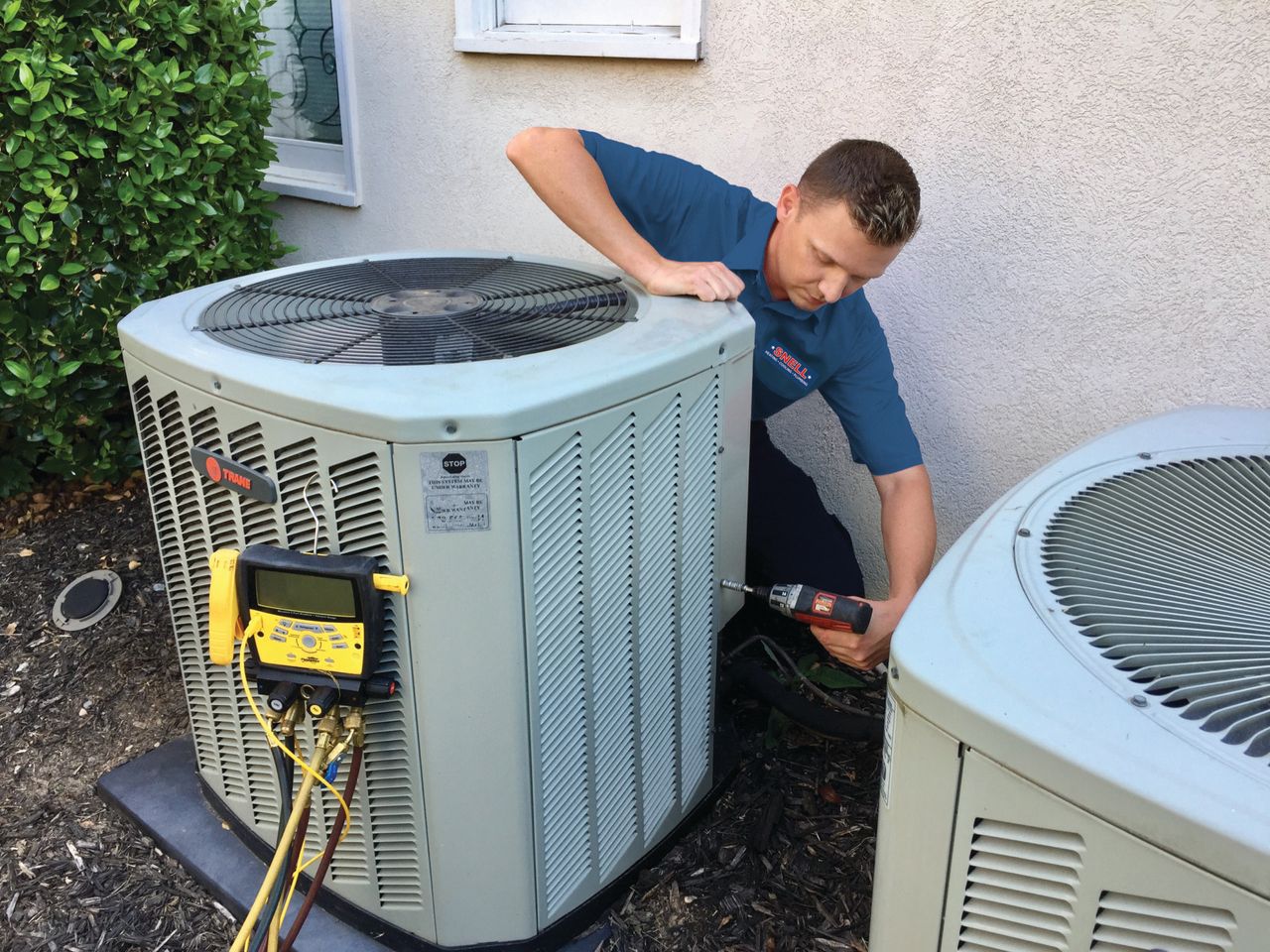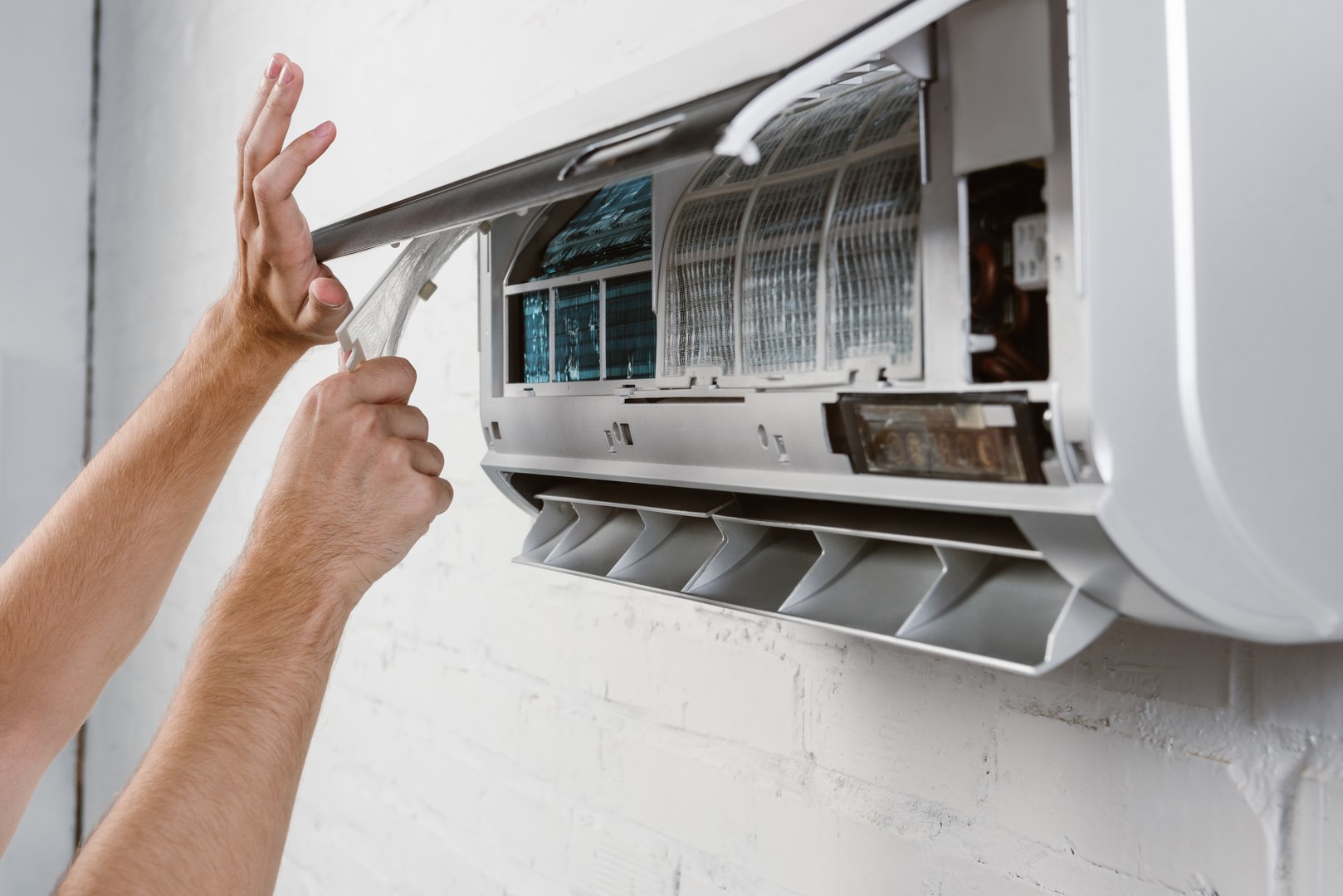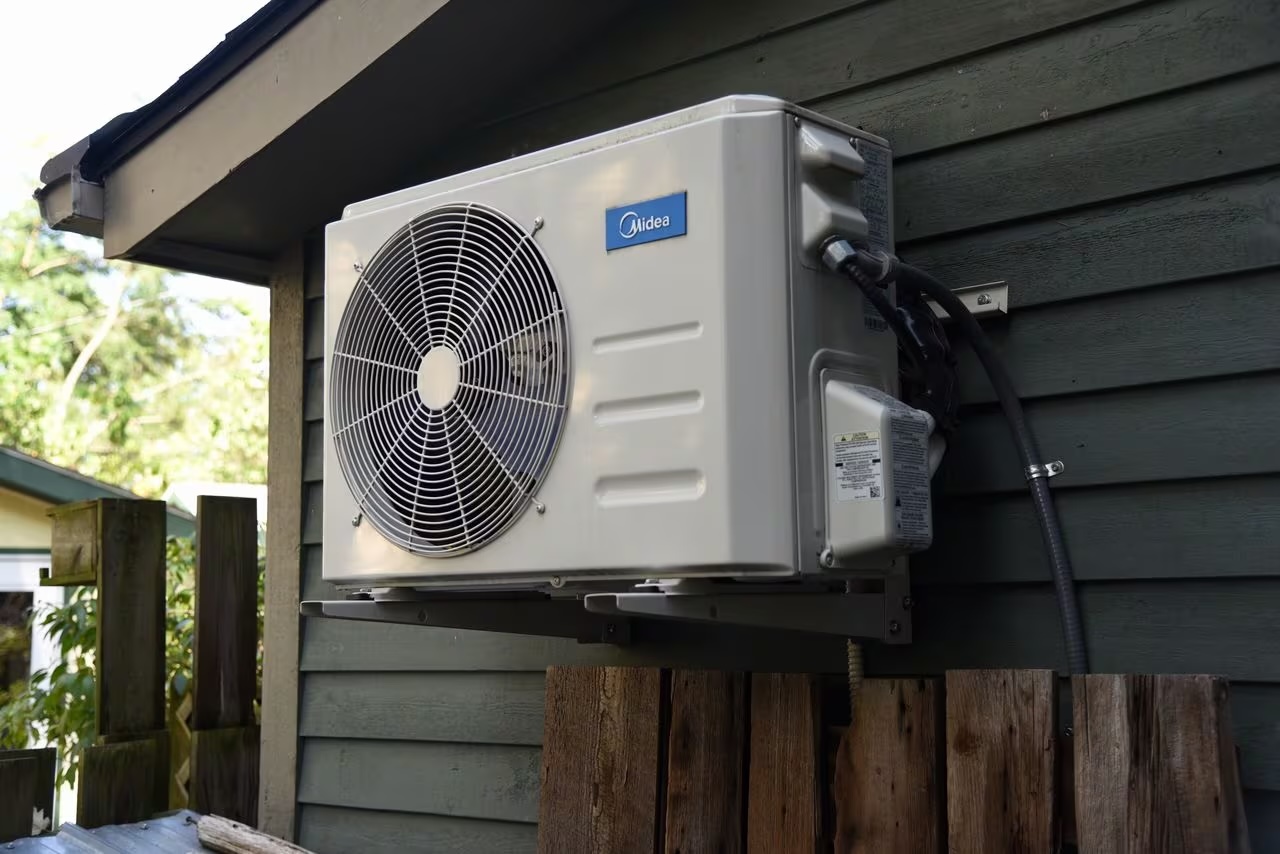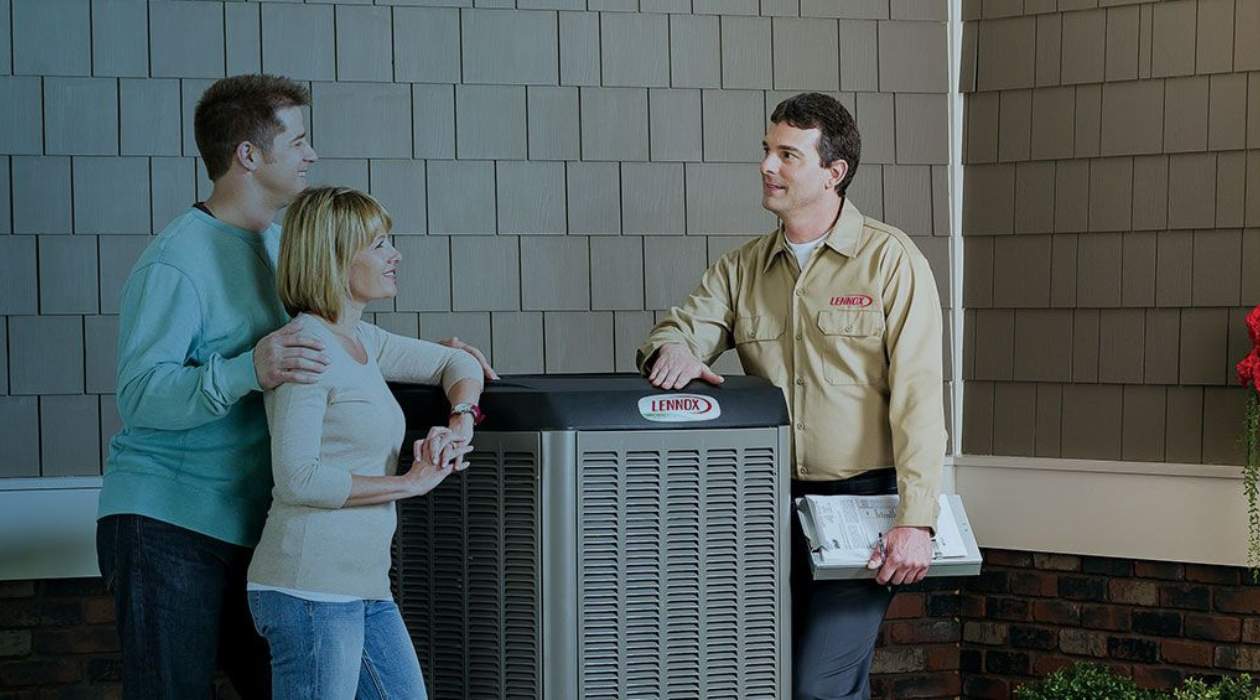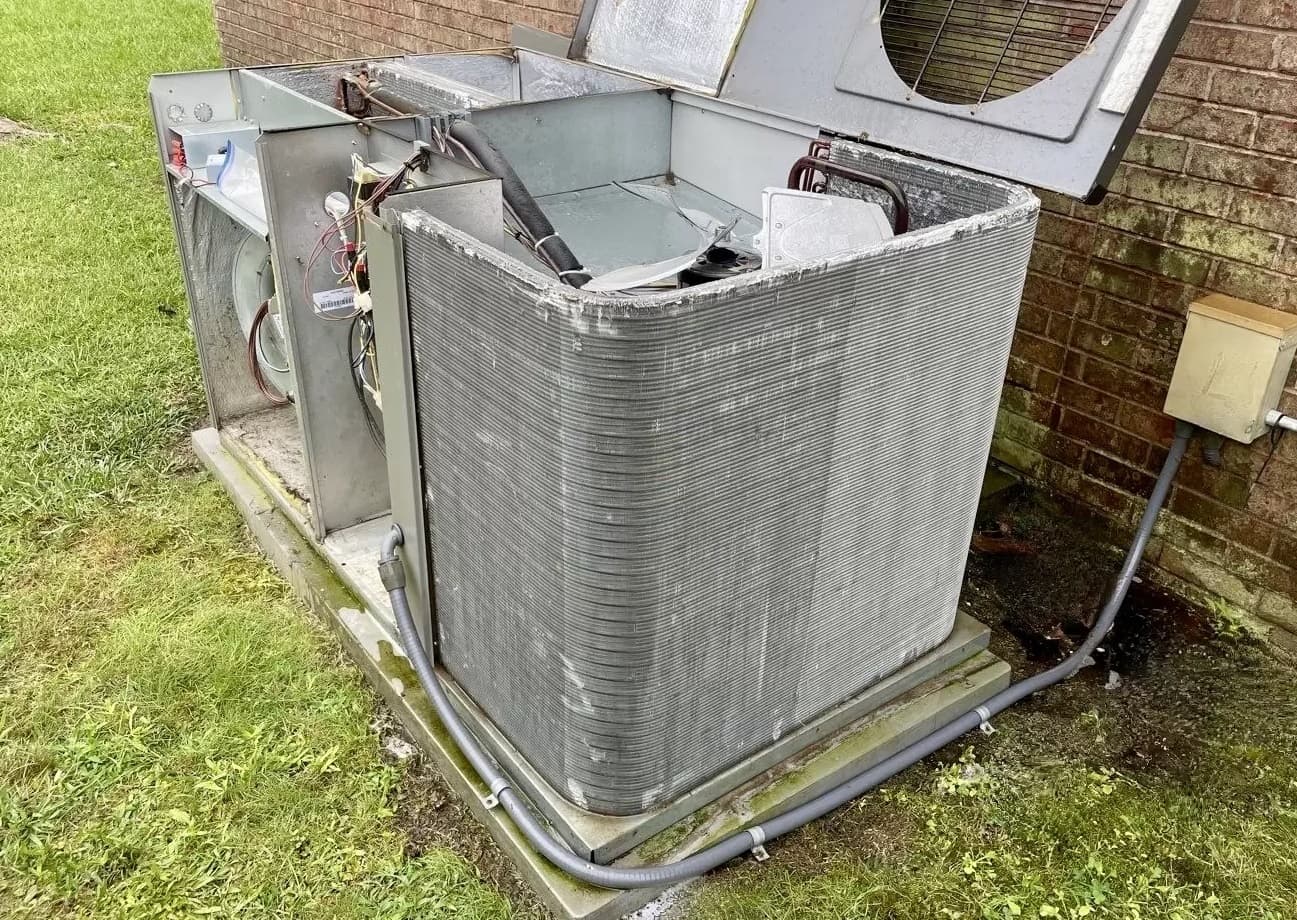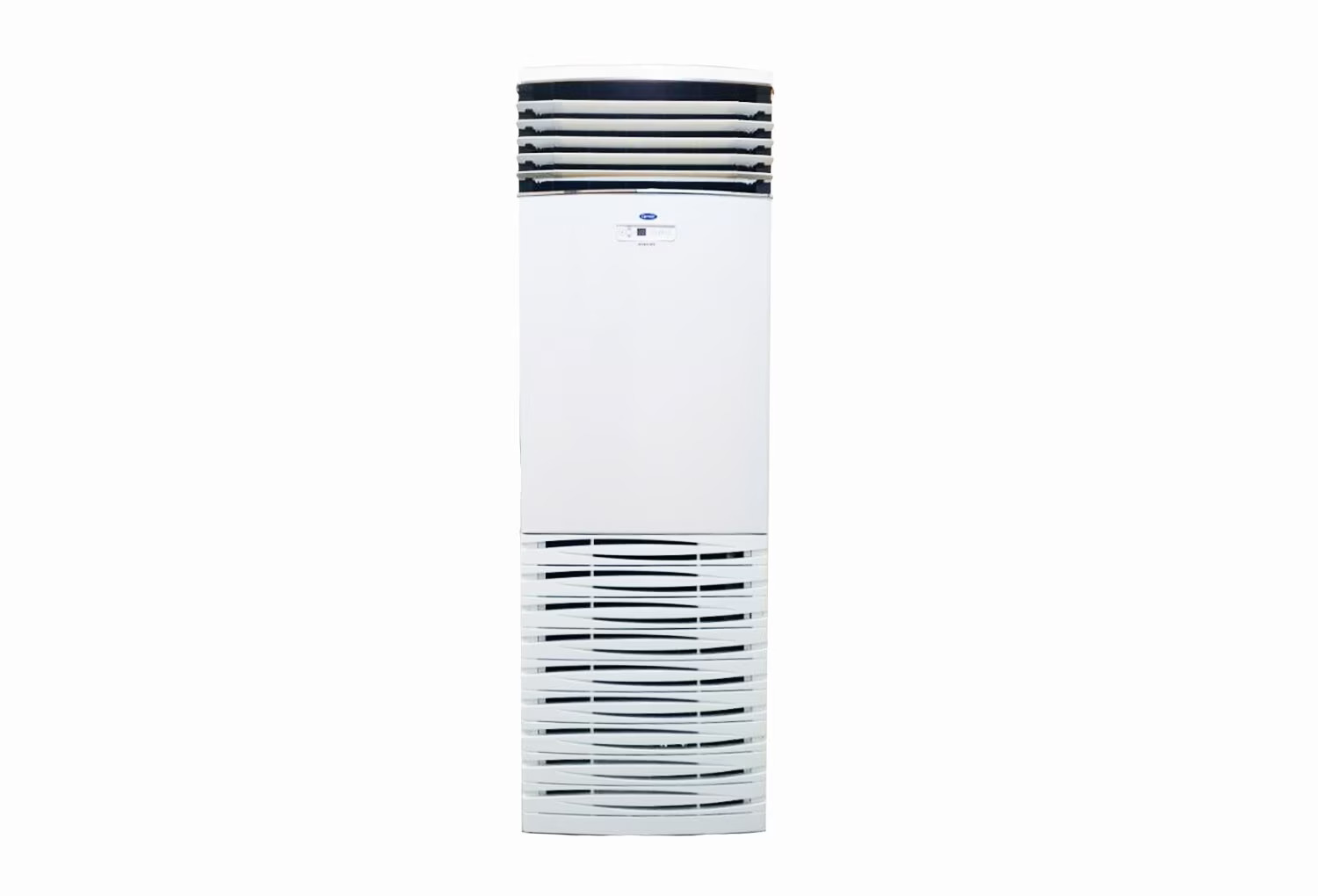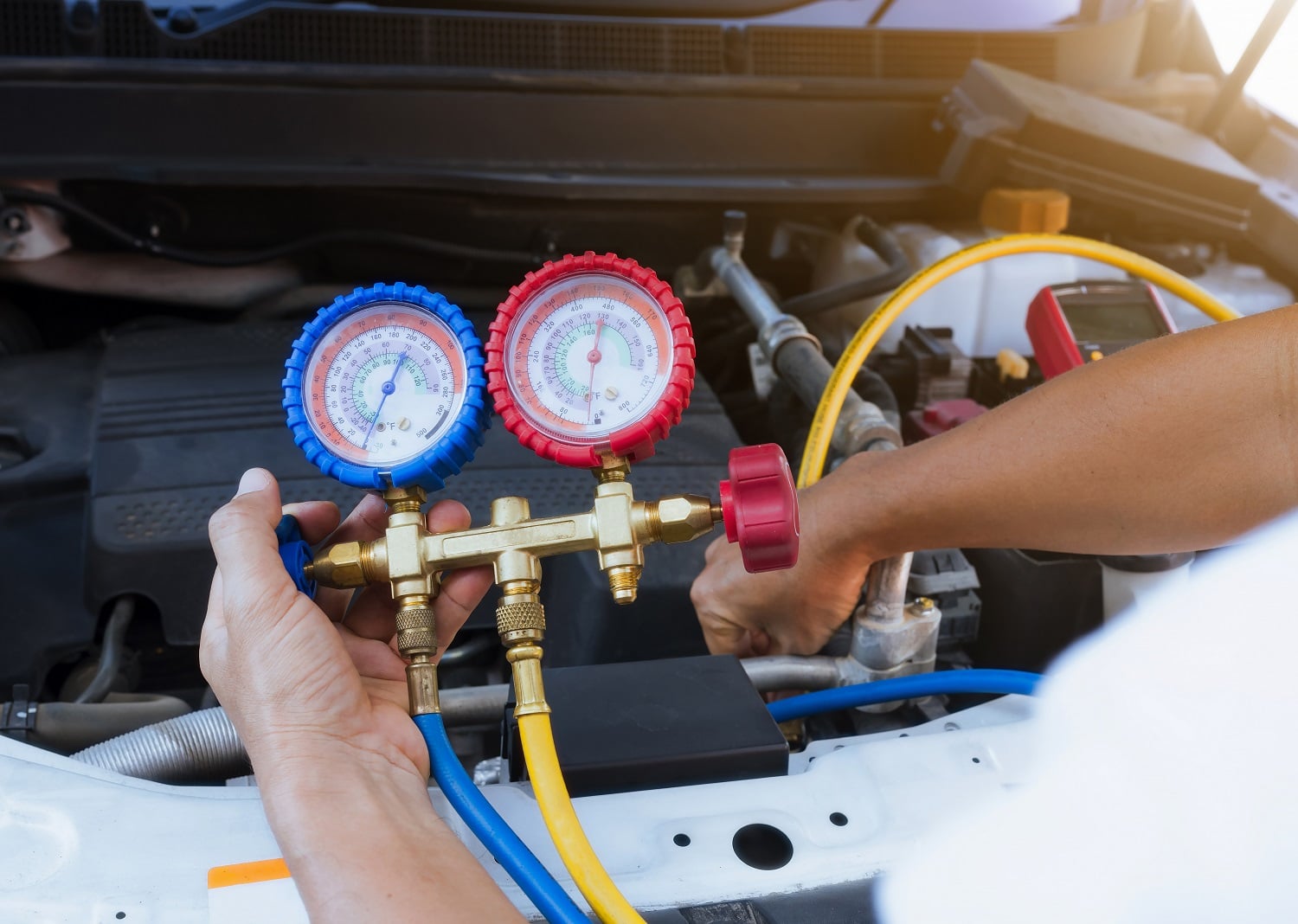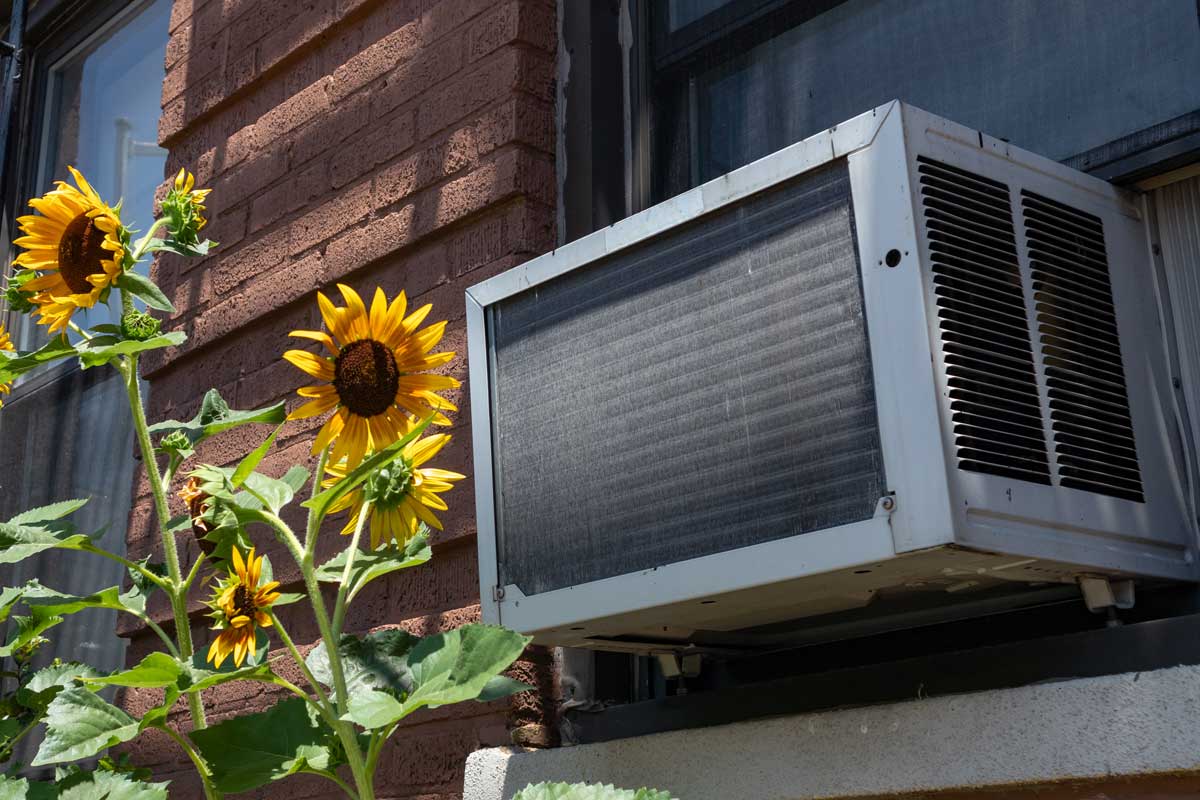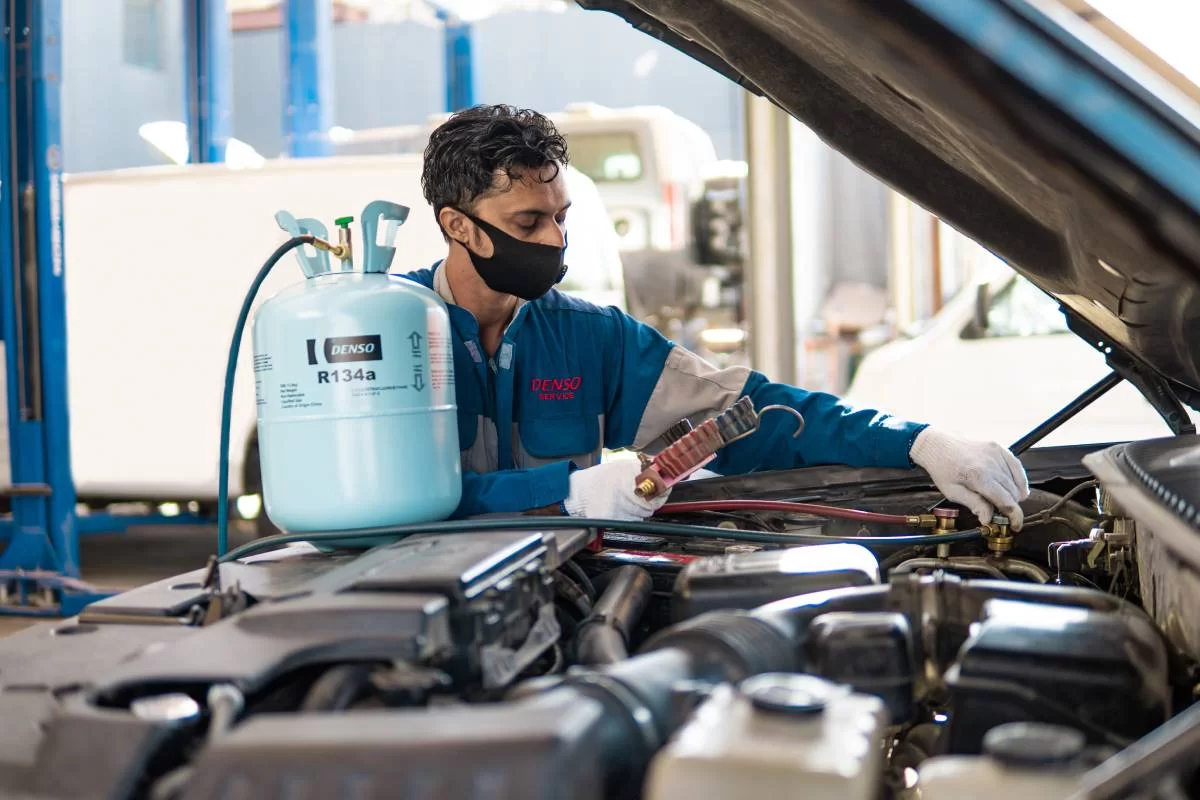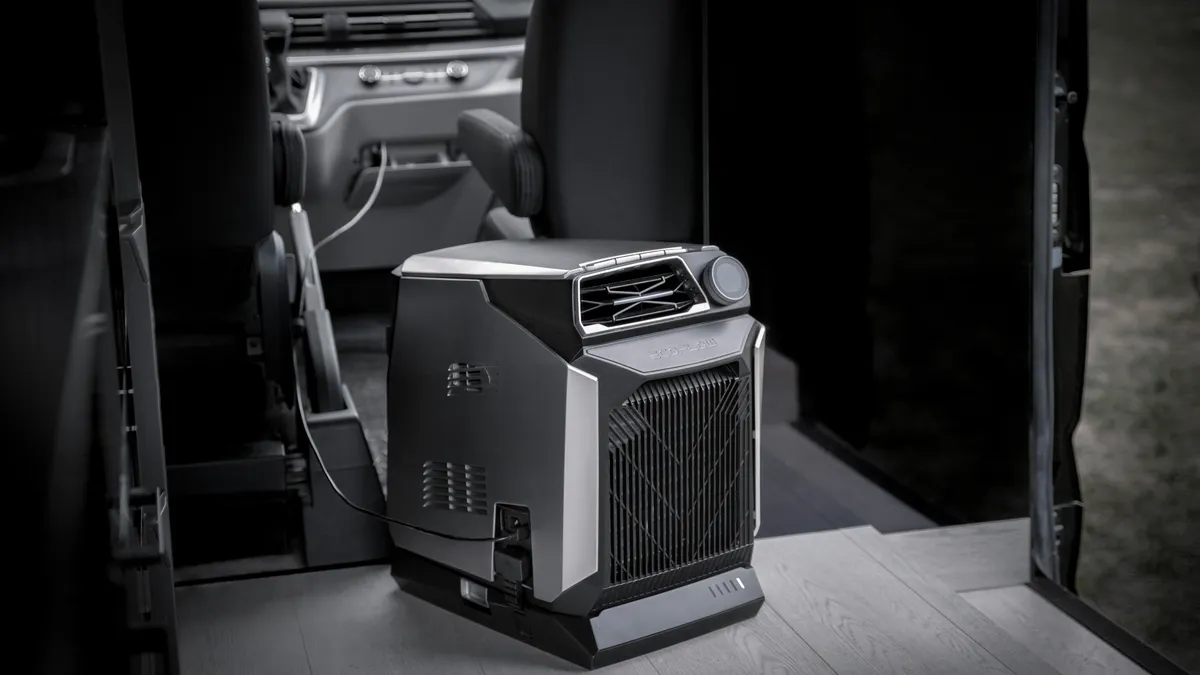Home>Home Maintenance>How Much Does It Cost To Recharge An Air Conditioner In A Car
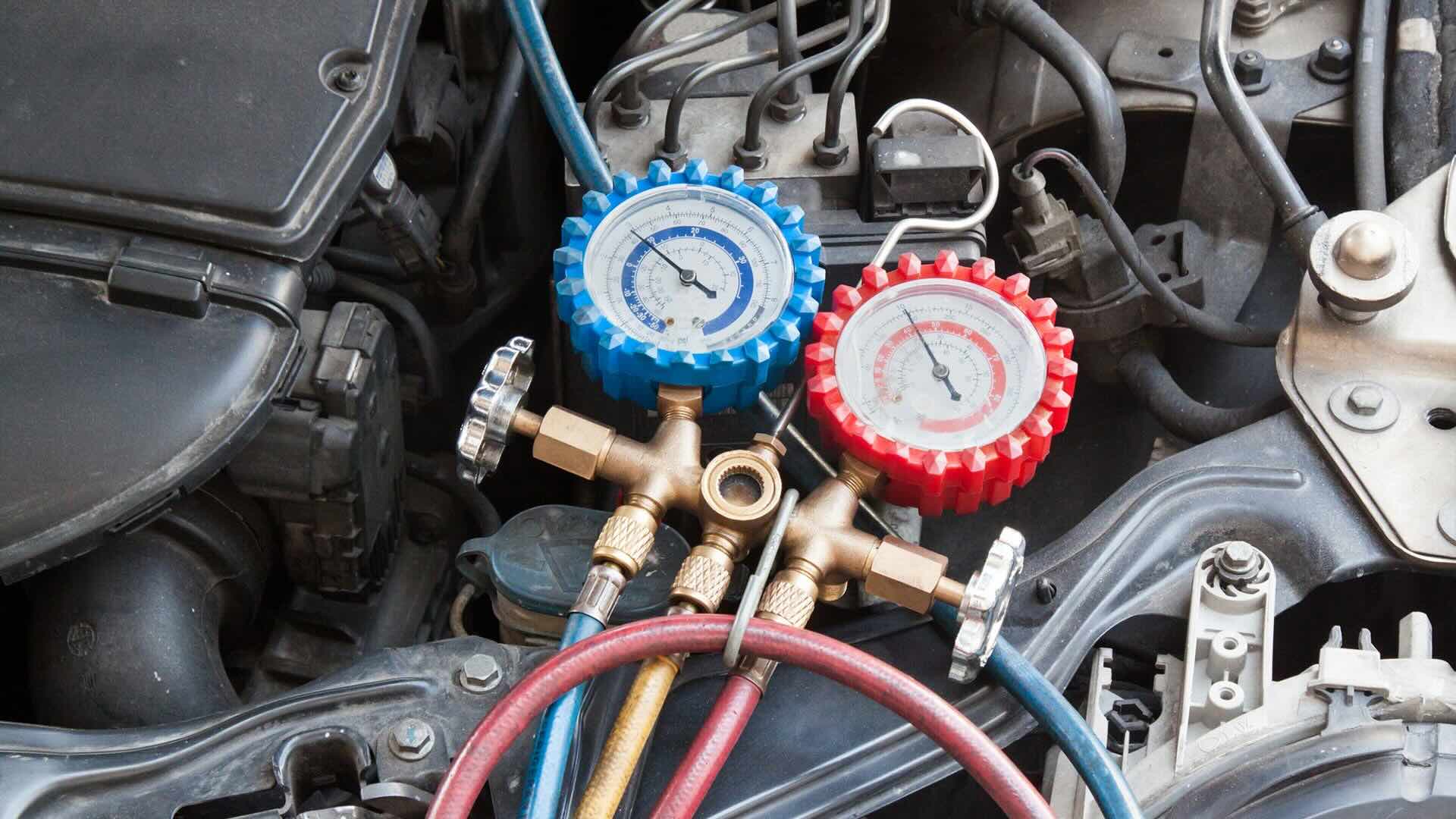

Home Maintenance
How Much Does It Cost To Recharge An Air Conditioner In A Car
Modified: March 7, 2024
Learn how much it costs to recharge your car's air conditioner for optimal home maintenance. Gain expert insights on AC repair and stay comfortable on the road.
(Many of the links in this article redirect to a specific reviewed product. Your purchase of these products through affiliate links helps to generate commission for Storables.com, at no extra cost. Learn more)
Introduction
During the hot summer months, having a functional air conditioner in your car is essential for staying cool and comfortable on the road. However, over time, your car’s air conditioning system may start to lose its cooling efficiency, requiring a recharge to restore optimal performance. But how much does it actually cost to recharge an air conditioner in a car?
The cost of recharging an air conditioner in a car can vary depending on several factors. In this article, we will explore the different factors that influence the overall cost, the types of air conditioning refrigerants used, average costs of refrigerant, labor costs, as well as additional considerations to keep in mind when getting your car’s air conditioner recharged.
So, whether you’re planning to recharge your air conditioner yourself or looking to hire a professional, read on to learn more about the costs associated with recharging an air conditioner in a car.
Key Takeaways:
- Recharging a car’s air conditioner can cost between $100 to $300, depending on factors like refrigerant type, quantity, labor, and repairs. It’s important to consider professional help for safety and warranty protection.
- DIY recharging may save money, but mishandling refrigerants can be risky. Professional recharging ensures proper inspection, warranty protection, and expert handling of potential issues.
Factors Affecting the Cost of Recharging an Air Conditioner in a Car
Several factors can influence the cost of recharging an air conditioner in a car. Understanding these factors will help you better estimate the expenses and make an informed decision. Here are some key factors to consider:
- Type of Refrigerant: The type of refrigerant used in your car’s air conditioning system is an important factor in determining the cost. Older vehicles often use R-134a refrigerant, while newer models may use the more environmentally friendly R-1234yf refrigerant. R-1234yf is generally more expensive than R-134a, which can impact the overall recharge cost.
- Quantity of Refrigerant Needed: The size and capacity of your car’s air conditioning system will determine the amount of refrigerant needed for a recharge. Larger systems require a larger quantity of refrigerant, which can increase the overall cost.
- System Leaks: If there is a leak in your car’s air conditioning system, it will need to be repaired before recharging. The cost of locating and fixing the leak can add to the total expense. It is important to address leaks as they can lead to further damage and refrigerant loss.
- Location: The cost of recharging an air conditioner can vary depending on your location. Prices may be higher in urban areas compared to rural areas or regions with a higher cost of living.
- Seasonal Demand: The time of year can impact the cost of air conditioner recharging. During peak summer months, when demand for air conditioning services is high, prices may be higher compared to other times of the year.
It’s important to note that the cost of recharging an air conditioner in a car can vary significantly depending on these factors and other variables unique to your specific situation. It is recommended to consult with a professional technician or automotive service center to get an accurate estimate based on your car’s make, model, and condition.
Types of Air Conditioning Refrigerants
Air conditioning systems in cars typically use specific types of refrigerants to cool the air. Over the years, different refrigerants have been used, with advancements in technology and environmental concerns leading to the development of more eco-friendly options. Here are the two main types of air conditioning refrigerants used in cars:
- R-134a: R-134a is a commonly used refrigerant in older cars. It is a hydrofluorocarbon (HFC) and has a low global warming potential (GWP), making it relatively safer for the environment compared to older refrigerants like R-12. However, R-134a is being phased out in many countries due to its contribution to climate change.
- R-1234yf: R-1234yf is the newer, more environmentally friendly refrigerant being used in many modern cars. It is classified as a hydrofluoroolefin (HFO) and has a significantly lower GWP compared to R-134a. R-1234yf has gained popularity due to its reduced impact on global warming.
It’s important to note that transitioning from R-134a to R-1234yf may require specific equipment and expertise to ensure proper installation and maintenance. If you have an older vehicle using R-134a, it is recommended to consult with a professional technician to understand the feasibility and cost of converting to the newer refrigerant.
Average Cost of Refrigerant for Recharging
The cost of refrigerant for recharging an air conditioner in a car can vary depending on factors such as the type of refrigerant and the quantity required. Additionally, prices can also vary based on geographical location and market fluctuations. However, here are some average cost estimates to give you a general idea:
- R-134a: As the older and more commonly used refrigerant, R-134a tends to be less expensive compared to R-1234yf. On average, the cost of R-134a refrigerant for a complete recharge can range from $50 to $100.
- R-1234yf: Since R-1234yf is the newer and more environmentally friendly refrigerant, it is generally more expensive than R-134a. The average cost of R-1234yf refrigerant for a complete recharge can range from $100 to $200. It’s worth noting that the price may be inflated due to its relative scarcity and high demand.
It is important to remember that these are average costs and actual prices may vary. Additionally, the cost of refrigerant is typically just one portion of the total expense for recharging an air conditioner in a car. Labor costs, additional repairs, and any other necessary parts or materials can add to the overall cost.
To get a more accurate estimate based on your specific situation, it is recommended to consult with a professional technician or automotive service center. They can assess the requirements of your car’s air conditioning system and provide you with a detailed breakdown of the costs involved.
It can cost anywhere from $100 to $400 to recharge the air conditioner in a car, depending on the type of refrigerant needed and the labor costs. It’s important to have a professional mechanic do the recharge to ensure it’s done correctly.
Labor Costs for Recharging an Air Conditioner in a Car
Recharging an air conditioner in a car requires specialized knowledge and equipment. While some car owners may choose to do the job themselves, it is recommended to hire a professional technician or take your car to an automotive service center for a proper recharge. Here are some factors to consider regarding labor costs:
- Hourly Labor Rate: The labor cost for recharging an air conditioner can vary depending on the location and the specific service provider. Hourly rates can range anywhere from $50 to $150 per hour, with an average rate falling around $75 to $100 per hour.
- Diagnostic Fee: In addition to the hourly labor rate, some service providers may charge a diagnostic fee to inspect and assess the condition of your car’s air conditioning system. This fee typically ranges from $50 to $100.
- Repair Costs: If any repairs or fixes are needed to address leaks or other issues in the air conditioning system, the labor costs for these additional services will be added to the total expense. The cost of repairs can vary widely depending on the extent of the problem and the specific parts or components that need attention.
It’s important to note that labor costs for recharging an air conditioner in a car are separate from the cost of refrigerant. The total labor cost will depend on the complexity of the job, the time required to complete the recharge, and any additional services or repairs needed.
While it may be tempting to save money by attempting a DIY recharge, it’s worth considering the potential risks of incorrect handling or inadequate knowledge. A professional technician has the expertise to identify and address any underlying issues, ensuring a proper recharge and avoiding further damage to the air conditioning system.
To get an accurate estimate of the labor costs involved, it’s best to consult with a reputable automotive service center or technician. They can assess your specific situation, provide a detailed breakdown of the costs, and ensure that the air conditioner recharge is done correctly and efficiently.
Additional Costs and Considerations
When it comes to recharging an air conditioner in a car, there may be some additional costs and considerations to keep in mind. These factors can impact the overall expense and the effectiveness of the recharge. Here are some important points to consider:
- System Inspection: Before proceeding with a recharge, it’s essential to have your air conditioning system inspected by a professional technician. This will help identify any underlying issues or leaks that need to be addressed before the recharge. The cost of the inspection can range from $50 to $100, depending on the service provider and the complexity of the inspection.
- Repairs and Replacement Parts: If leaks or other problems are discovered during the system inspection, additional repairs may be required. The cost of repairs can vary depending on the extent of the damage and the specific parts or components that need to be fixed or replaced. It’s important to factor in these potential costs when budgeting for the air conditioner recharge.
- System Maintenance: Recharging the air conditioner is one aspect of maintaining its optimal performance. However, it’s also crucial to regularly maintain the entire system to prevent future issues. This can include cleaning the condenser, replacing filters, and ensuring proper ventilation. Regular maintenance can help extend the lifespan of your air conditioning system and minimize the need for costly repairs in the future.
- Warranty Considerations: If your car is still under warranty, it’s important to check the terms and conditions before getting the air conditioner recharged. Some warranties may require specific service providers or procedures to be followed to maintain the warranty coverage. Failing to comply with these requirements could potentially void the warranty, leaving you responsible for the costs.
- DIY vs. Professional Recharging: While some car owners may attempt to recharge the air conditioner themselves to save money, it’s important to consider the risks and complexities involved. Mishandling refrigerants can be hazardous to your health and the environment. Additionally, without proper knowledge and equipment, it’s easy to overlook underlying issues or improperly recharge the system. Hiring a professional technician ensures the job is done correctly and safely.
By considering these additional costs and factors, you can make a more informed decision about recharging your car’s air conditioner. Prioritizing proper inspection, maintenance, and professional expertise will help ensure a successful and effective recharge, prolonging the life of your air conditioning system.
DIY vs. Professional Recharging
When it comes to recharging an air conditioner in a car, you have the option of either doing it yourself (DIY) or hiring a professional technician. Each approach has its own advantages and considerations to keep in mind. Let’s explore the differences between DIY and professional recharging:
DIY Recharging:
- Cost Savings: One of the main reasons car owners choose the DIY approach is to save money. By purchasing a recharge kit and following the instructions, you can avoid paying labor costs associated with a professional service.
- Convenience and Control: DIY recharging allows you to work on your own time and at your own pace. You have control over the process and can choose the products and tools you prefer.
- Learning Opportunity: Recharging your car’s air conditioner yourself can be a valuable learning experience. It gives you a better understanding of your vehicle’s mechanics and empowers you to handle minor maintenance tasks.
However, there are some important considerations to keep in mind with DIY recharging:
- Risk of Mishandling: DIY recharging involves handling refrigerant, which can be hazardous if not done correctly. Improper handling of refrigerant can cause health risks and potential damage to the environment.
- Limited Expertise: While recharge kits come with instructions, they may not address potential underlying issues or leaks in the system. Without proper expertise, it’s easy to overlook these problems, leading to ineffective results and potential system damage.
- Voiding of Warranty: If your car is still under warranty, DIY recharging may void the warranty coverage. Manufacturers often specify that certain procedures must be followed by certified professionals to maintain the warranty.
Professional Recharging:
- Expertise and Experience: Hiring a professional technician ensures that the job is done correctly. They have the knowledge, skills, and tools necessary to diagnose any issues, fix leaks, and properly recharge the system.
- Thorough Inspection: A professional technician will conduct a comprehensive inspection of your air conditioning system, identifying any underlying problems that need to be addressed before the recharge. This ensures optimum performance and prevents further damage.
- Warranty Protection: Professional recharging, done by authorized service providers, safeguards your warranty coverage and keeps you in compliance with the manufacturer’s requirements.
However, there are also some considerations when opting for professional recharging:
- Cost: Hiring a professional technician involves labor costs, which can add to the overall expense of recharging the air conditioner.
- Dependency on Service Centers: Scheduling an appointment and relying on a service center’s availability may cause some inconvenience and longer waiting times.
In the end, the decision between DIY and professional recharging depends on your level of comfort, expertise, and the specific needs of your car’s air conditioning system. If you are unsure or lack experience, it is generally recommended to seek professional assistance to ensure a safe and effective recharge.
Conclusion
Recharging an air conditioner in a car is an important maintenance task to ensure optimal cooling performance, especially during the hot summer months. The cost of recharging can vary depending on factors such as the type of refrigerant, quantity needed, labor costs, and additional repairs or parts required. It’s important to consider these factors and consult with a professional technician or automotive service center for an accurate estimate based on your specific situation.
When it comes to recharging, you have the option of doing it yourself or hiring a professional. DIY recharging can be appealing due to potential cost savings and the learning experience it offers. However, it’s important to understand the risks involved in handling refrigerants without proper expertise and the possibility of voiding your warranty. Hiring a professional ensures the job is done correctly, identifies any underlying issues, and protects your warranty coverage.
Regardless of whether you choose DIY or professional recharging, it is essential to prioritize regular maintenance and address any leaks or problems discovered during system inspections. Properly maintaining your car’s air conditioning system can extend its lifespan and prevent costly repairs down the line.
Ultimately, the decision between DIY and professional recharging depends on your comfort level, expertise, and specific needs. Consider the complexity of the job, safety concerns, and the potential impact on your warranty. Consulting with professionals and weighing the pros and cons will help you make an informed decision.
Remember, a well-maintained and properly functioning air conditioner in your car not only keeps you comfortable but also contributes to your overall driving experience. Take the time to understand the costs involved, prioritize maintenance, and seek professional help when needed to ensure your car’s air conditioning system operates at its best.
Frequently Asked Questions about How Much Does It Cost To Recharge An Air Conditioner In A Car
Was this page helpful?
At Storables.com, we guarantee accurate and reliable information. Our content, validated by Expert Board Contributors, is crafted following stringent Editorial Policies. We're committed to providing you with well-researched, expert-backed insights for all your informational needs.
